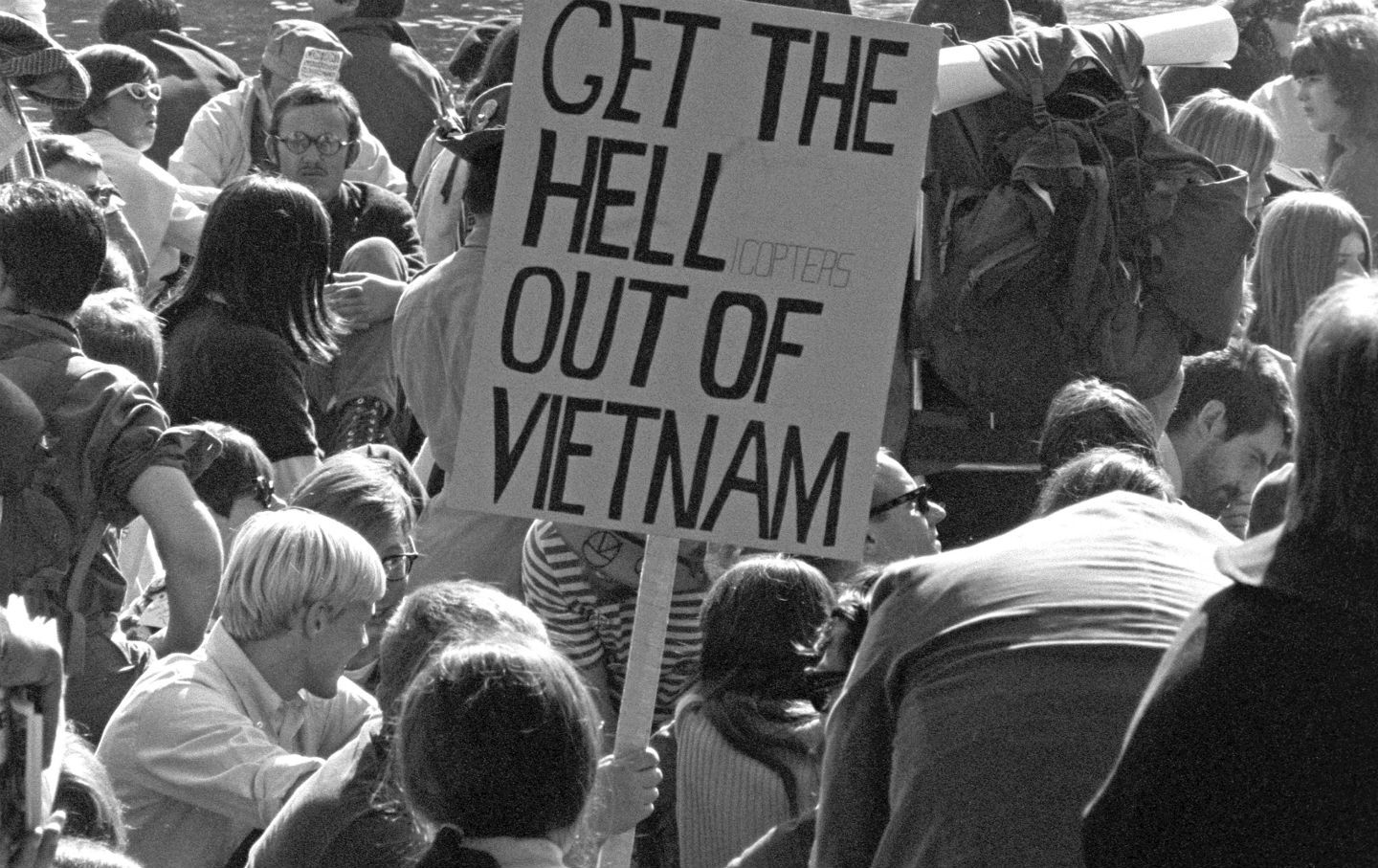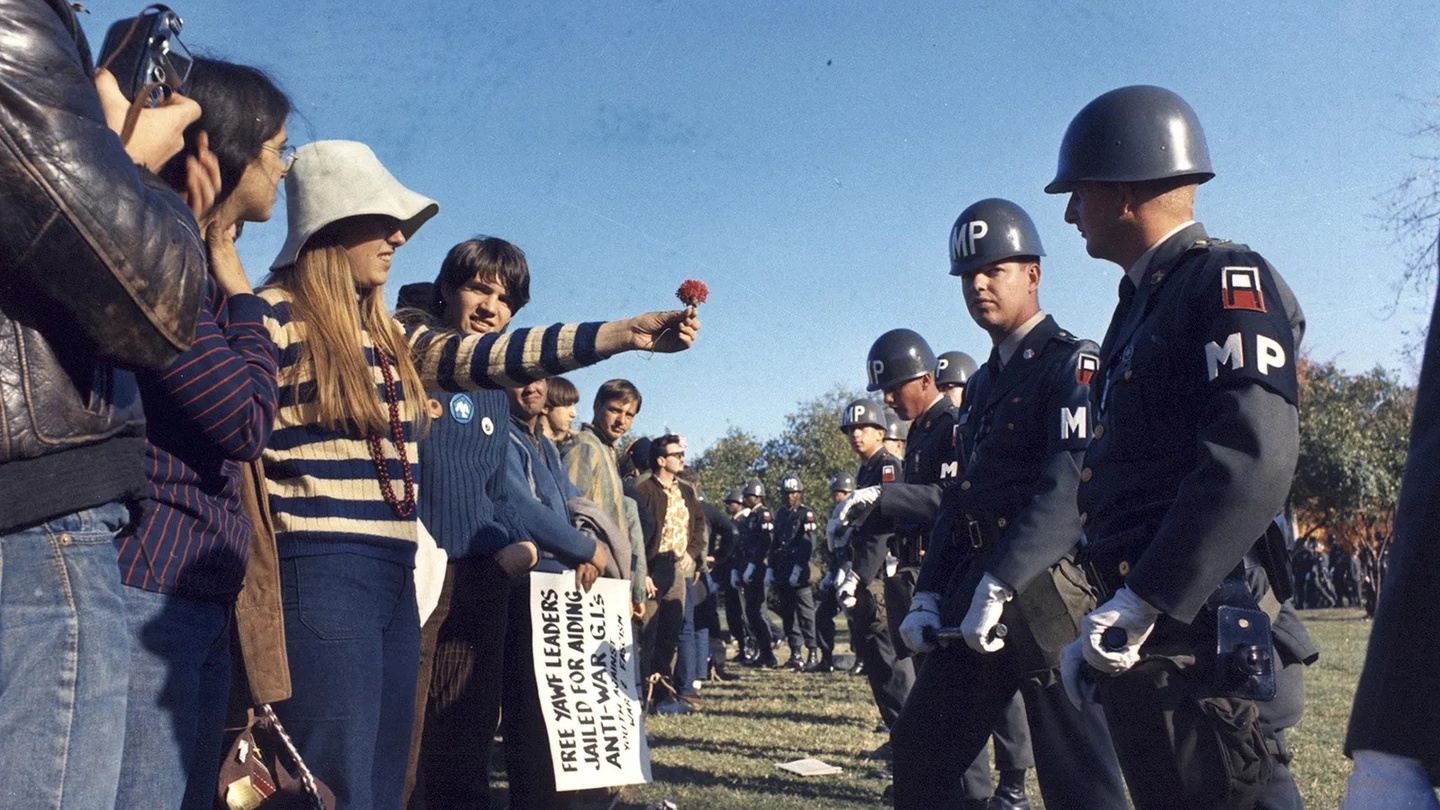Anti-War Activism During the Vietnam War: Understanding the Ways in Which We Protested
A Digital Exhibit by Dashiell Advincula, Patrick Howard, Katherine Lynch, and Hudson Rogers
Anti-War Activism during the Vietnam War: Understanding the Ways in Which We Protested is a digital exhibit that seeks to understand the diverse environment of opposition and objection during one of the most controversial wars in US history.
"I really understood that we had no business there. That, again, we couldn't patrol the world and say: our way or the highway–and that was its own kind of arrogance, so…" - Joan Rachlin
From the mid-1950s to the mid-1970s, the Vietnam War was a contentious political discussion that divided the nation. An escalation of casualties was mirrored by an escalation of anti-war sentiment. By the late 1960s and early 1970s, the anti-war sentiment and movement took on many different shapes. From actions within the political framework, such as lobbying to illegal and, at times, violent demonstrations, the escalation of the anti-war movement was cause for national concern. This exhibit aims to highlight how different individuals expressed their opposition to the Vietnam War, as well as examine how their early lives’ affected their expression and how their anti-war opposition impacted their later years.
Through the voices from four interviews: Janis Nelson, Dennis Bidwell, Charlotte Albright, and Joan Rachlin, this exhibit pulls from the experiences of first-hand witnesses who communicate their journeys to opposing the Vietnam War and uncover their tactics to get their voices heard.
The digital exhibit concentrates on four content pages. Firstly, the exhibit will introduce and include four oral history interviews conducted for The Dartmouth Vietnam Project by the creators of this digital exhibit: Patrick Howard, Dashiell Advincula, Hudson Rogers, and Katherine Lynch. The interviews include participants who were active in the Vietnam anti-war movement. Secondly, the exhibit will explore young anti-war activists' early lives, mainly from the four aforementioned interviews. Then, ‘Arenas of Activism’ will explore how anti-war activists sought to get their opinions across. Finally, ‘Impact of Activism’ seeks to understand the personal impacts anti-war activism had on those who participated.



